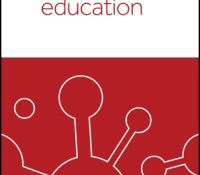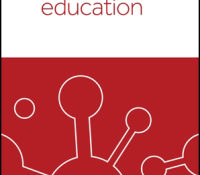tandfonline.com har udgivet en rapport under søgningen “Teacher Education Mathematics”: ABSTRACT ABSTRACT This study investigates the impact of the presence of students identified as having special needs (SEN) on their classmates’ achievements in reading comprehension. Multi-level regression modelling was conducted with the data of more than 75,000 fourth graders of 4,937 classes in Austria. Students’ scores of reading comprehension were used as the dependent variable in the models. The number of students with SEN was used as the independent variable, besides other class-level predictors like the socio-economic status or the self-concept. To disentangle individual from classroom composition aspects, variables at the individual level were used as independent variables as well (gender, age, first language, number of books at home, socio-economic background, kindergarten attendance, and self-concept). Results show only a small… Continue Reading →
Like this:
Like Loading...
tandfonline.com har udgivet en rapport under søgningen “Teacher Education Mathematics”: Abstract Formulae display:?Mathematical formulae have been encoded as MathML and are displayed in this HTML version using MathJax in order to improve their display. Uncheck the box to turn MathJax off. This feature requires Javascript. Click on a formula to zoom. Abstract Self-regulated learning (SRL) strategies have gained a great prominence in second language reading comprehension; however, to have a comprehensive picture of their efficacy, this study investigated the significant relationships among SRL components, reading comprehension and reading problem solving. Moreover, it examined the effects of SRL instruction on SRL strategies, reading comprehension, problem solving and the strength of the relationships among these variables. To this end, 183 Iranian English as a foreign language (EFL) learners participated in two phases… Continue Reading →
Like this:
Like Loading...
tandfonline.com har udgivet en rapport under søgningen “Teacher Education Mathematics”: Abstract Formulae display:?Mathematical formulae have been encoded as MathML and are displayed in this HTML version using MathJax in order to improve their display. Uncheck the box to turn MathJax off. This feature requires Javascript. Click on a formula to zoom. Abstract The present study examined the effect of L1 domain-relevant knowledge on L2 reading comprehension texts among student teachers of ELT (N = 90), drawn from a population of 270 student teachers studying at an undergraduate program in some state universities in Iran. A proficiency test was applied to control language proficiency of students. Among them, those whose scores were one standard deviation above and below the mean were selected and divided into three different groups based on their… Continue Reading →
Like this:
Like Loading...
tandfonline.com har udgivet en rapport under søgningen “Teacher Education Mathematics”: ABSTRACT ABSTRACT An increasing number of high-stakes mathematics standardised tests around the world place an emphasis on using mathematical word problems to assess students’ mathematical understanding. Not only do these assessments require children to think mathematically, but making sense of these tests’ mathematical word problems also brings children’s language ability, reading comprehension and working memory into play. The nature of these test items places a great deal of cognitive demand on all mathematics learners, but particularly on children completing the assessments in a second language that is still developing. This paper reports findings from an exploratory study on the contribution of language to mathematics achievement among 35 children with English as an Additional Language (EAL) and 31 children with English… Continue Reading →
Like this:
Like Loading...



